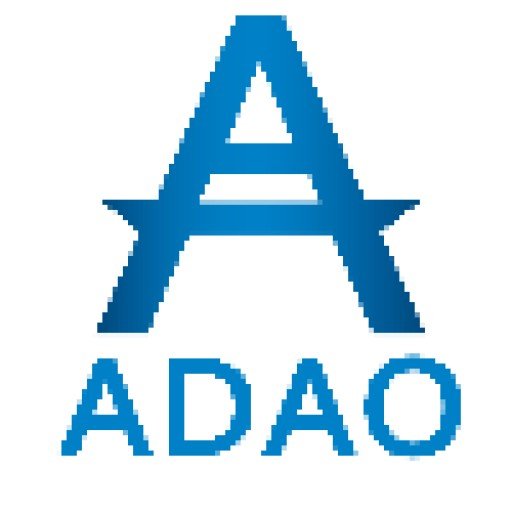[IMPACT] Please describe your proposed solution.
Our proposed solution focuses on implementing the concept of Delegate Representatives (dReps) within Project Catalyst. dReps will act as representatives who will review, vote, and coordinate on proposals, ensuring a more efficient and scalable voting process. We will also improve community voting standards to increase transparency, inclusivity, and diversity in the decision-making process.
[IMPACT] How does your proposed solution address the challenge and what benefits will this bring to the Cardano ecosystem?
By introducing dReps and improving community voting standards, we address the challenge of limited efficiency and scalability in Cardano. The involvement of dReps will distribute the workload of reviewing and voting on proposals, enabling a more thorough evaluation process. This will lead to higher quality decision making and increased community participation. Additionally, by improving voting standards, we foster transparency, inclusivity, and diversity, ensuring that all voices are heard and valued. Ultimately, this will strengthen the Cardano ecosystem by promoting fair and effective governance.
[IMPACT] How do you intend to measure the success of your project?
Participation: We will track the increase in the number of community members actively engaging in the voting process. A higher level of participation indicates a successful implementation of our Voting system and a more inclusive decision-making process.
Transparency and inclusivity: We will measure the implementation of improved voting standards that promote transparency and ensure diverse representation. By providing clear visibility into the voting process and incorporating mechanisms to prevent manipulation, we aim to create a more transparent and inclusive environment for decision-making.
Feedback and satisfaction: Regular feedback surveys and assessments will be conducted to gauge community satisfaction and gather suggestions for further improvements. By actively seeking feedback and addressing community concerns, we can continuously enhance the voting experience and ensure high levels of satisfaction among participants.
[IMPACT] Please describe your plans to share the outputs and results of your project?
- Regular progress updates: Posting updates on community forums, social media platforms, and project-specific websites.
- Documentation and reports: Publishing detailed reports on the implementation of dReps, improvements in community voting standards, and their impact on decision making.
- Webinars and workshops: Organizing interactive sessions to educate the community about the changes, gather feedback, and address any concerns.
- Community engagement: Actively participating in discussions, responding to inquiries, and collecting community input through surveys and open forums.
- Collaboration with IOG: Collaborating with IOG to ensure alignment with their communication channels and engaging with the wider Cardano ecosystem.
[CAPABILITY/ FEASIBILITY] What is your capability to deliver your project with high levels of trust and accountability?
Our team consists of experienced professionals with a strong background in blockchain technology, governance systems, and community management. We have successfully delivered projects in similar domains, showcasing our capability to handle complex initiatives. We prioritize transparency, open communication, and accountability throughout the project's lifecycle. Regular updates, documentation, and engagement with the community will ensure trust and accountability.
[CAPABILITY/ FEASIBILITY] What are the main goals for the project and how will you validate if your approach is feasible?
- Implementation of dReps: Successfully integrating dReps into the Cardan’s voting process, ensuring their active participation and coordination.
- Improved voting standards: Developing and implementing enhanced community voting standards that promote transparency, inclusivity, and diversity.
- Efficient and scalable voting process: Demonstrating the ability to handle a growing number of proposals without compromising the quality and thoroughness of the decision-making process.
[CAPABILITY/ FEASIBILITY] Please provide a detailed breakdown of your project’s milestones and each of the main tasks or activities to reach the milestone plus the expected timeline for the delivery.
Phase 1: Team Formation and Research (Month 1)
Tasks:
- Forming the project team with expertise in blockchain technology, voting systems, and software development.
- Conducting extensive research on current voting standards and practices, specifically focusing on their strengths and limitations.
- Analyzing existing voting implementations in other domains to gain insights and identify best practices.
- Assessing the requirements and challenges of implementing an enhanced voting system on the Agora platform.
Phase 2: System Design and Development (Months 2-4)
Tasks:
- Designing the architecture and infrastructure required to integrate the enhanced voting system into the Agora platform.
- Developing the necessary smart contracts and algorithms for vote calculation and result aggregation.
- Implementing user interfaces and user experience design to ensure a seamless voting experience.
- Conducting extensive testing and refinement to ensure the system's functionality, accuracy, and security.
Phase 3: Integration and Deployment (Month 5)
Tasks:
- Integrating the enhanced voting system into the Agora platform, ensuring compatibility and seamless user interaction.
- Conducting comprehensive testing of the integrated system to verify its functionality and performance.
- Deploying the voting system on the Agora platform, making it available for community members to participate and vote.
- Monitoring the initial usage and gathering user feedback to address any potential issues or improvements.
Phase 4: Evaluation and Iteration (Months 6-8)
Tasks:
- Evaluating the performance and effectiveness of the enhanced voting system based on key metrics such as user engagement, voting efficiency, and feedback from participants.
- Analyzing the collected data to identify areas for improvement and fine-tuning of the system.
- Iterating on the system design and implementation to address any identified shortcomings or user suggestions.
- Conducting additional testing and validation to ensure the system's enhanced functionality and user experience.
Phase 5: Full Deployment and Community Adoption (Months 9-12)
Tasks:
- Finalizing the implementation of the improved voting system based on the evaluation and iteration results.
- Promoting the system among the Cardano community through targeted marketing campaigns and educational materials.
- Encouraging community members to actively participate in the voting process and providing support for their engagement.
- Monitoring the system's usage and gathering feedback from the community to measure its impact and effectiveness.
[CAPABILITY/ FEASIBILITY] Please describe the deliverables, outputs and intended outcomes of each milestone.
Phase 1: Team Formation and Research (Month 1)
Deliverables:
- Established project team with defined roles and responsibilities.
- Research report on current voting standards and practices, highlighting strengths, limitations, and potential areas for improvement.
- Documentation of the requirements and challenges of implementing an enhanced voting system on the Agora platform.
Outputs:
- Project team members identified and assigned roles.
- Comprehensive research report on existing voting systems.
- Clear understanding of the specific requirements and challenges of implementing the enhanced voting system.
Intended Outcomes:
- Well-formed project team ready to proceed with the development and implementation phases.
- In-depth knowledge of existing voting standards to inform the design of an enhanced system.
- Awareness of the potential challenges and considerations for successful integration on the Agora platform.
Phase 2: System Design and Development (Months 2-4)
Deliverables:
- System architecture and infrastructure design documentation.
- Developed smart contracts and algorithms for vote calculation and result aggregation.
- User interfaces and user experience design for a seamless voting experience.
Outputs:
- Detailed documentation of the system architecture and infrastructure.
- Developed smart contracts and algorithms for accurate vote calculation.
- User interfaces designed to ensure a user-friendly voting experience.
Intended Outcomes:
- Well-defined system architecture to guide the development process.
- Functioning smart contracts and algorithms for precise vote calculation.
- User-friendly interfaces to promote ease of use and engagement.
Phase 3: Integration and Deployment (Month 5)
Deliverables:
- Integrated enhanced voting system into the Agora platform.
- Comprehensive testing report ensuring functionality, accuracy, and security.
- Deployed voting system accessible to community members.
Outputs:
- Successful integration of the enhanced voting system into the Agora platform.
- Testing report confirming the system's functionality, accuracy, and security.
- Live deployment of the voting system for community participation.
Intended Outcomes:
- Seamless integration of the voting system into the Agora platform.
- Verified functionality, accuracy, and security of the system through testing.
- Community access to the voting system, enabling their participation in decision-making processes.
Phase 4: Evaluation and Iteration (Months 6-8)
Deliverables:
- Evaluation report assessing the performance and effectiveness of the enhanced voting system.
- Iteration plan detailing improvements and refinements based on evaluation results.
- Tested and validated system updates to address identified shortcomings.
Outputs:
- Evaluation report providing insights into the system's performance and effectiveness.
- Detailed plan for iterative improvements based on evaluation findings.
- Updated system addressing identified shortcomings and suggestions for enhancement.
Intended Outcomes:
- Clear assessment of the system's performance and effectiveness.
- Actionable plan for iterative improvements to enhance the system.
- Improved system functionality based on user feedback and evaluation results.
Phase 5: Full Deployment and Community Adoption (Months 9-12)
Deliverables:
- Fully implemented and refined enhanced voting system.
- Marketing materials and campaigns to promote community adoption.
- Feedback analysis report on community satisfaction and usage.
Outputs:
- Deployed and operational enhanced voting system available for community adoption.
- Marketing materials and campaigns raising awareness and encouraging community participation.
- Comprehensive analysis report on community feedback and satisfaction.
Intended Outcomes:
-
Wide adoption of the enhanced voting system within the Cardano community.
-
Increased community engagement and participation in the voting process.
-
Insights into community satisfaction and suggestions for further improvements.
[RESOURCES & VALUE FOR MONEY] Please provide a detailed budget breakdown of the proposed work and resources.
Project Management & Research (22,000 ADA): This constitutes 20% of the total budget. It covers the planning, administration, and research activities necessary for effective project management and strategic decision-making.
Integration Development (58,580 ADA): This represents approximately 53.33% of the project budget. It includes the development of the necessary infrastructure and protocols for seamless integration with existing systems or platforms. The budget covers developer salaries and technological resources.
Testing & Refinement (14,665 ADA): This allocation corresponds to about 13.33% of the budget. It encompasses thorough testing and refinement to ensure the project's functionality and quality standards are met. The budget addresses the associated costs for testing and making necessary improvements.
Documentation (14,665 ADA): This portion, constituting approximately 13.33% of the total budget, is dedicated to developing comprehensive user documentation and sample dApps. This supports user understanding and serves as a showcase of the project's capabilities.
The contingency reserve of 10,500 ADA (10% of the total 110,000 ADA) is set aside to account for any unforeseen costs or challenges that may arise during the project's execution, ensuring flexibility and adaptability.
[RESOURCES & VALUE FOR MONEY] Who is in the project team and what are their roles?
- Project Manager: Responsible for overall project management, coordination, and communication.
- Blockchain Developer: Handles the technical implementation and integration of the dRep system.
- Governance Expert: Provides expertise in governance systems and voting standards improvement.
- Community Manager: Engages with the Cardano community, gathers feedback, and ensures effective communication.
[RESOURCES & VALUE FOR MONEY] How does the cost of the project represent value for money for the Cardano ecosystem?
The cost of this project represents an investment in enhancing the decision-making process and scalability of community voting within Project Catalyst. By implementing dReps and improving voting standards, the Cardano ecosystem benefits from more efficient, inclusive, and transparent governance. The value for money is reflected in the increased participation, better representation of diverse voices, and improved quality of decision making, leading to the sustainable growth and success of the Cardano ecosystem.



